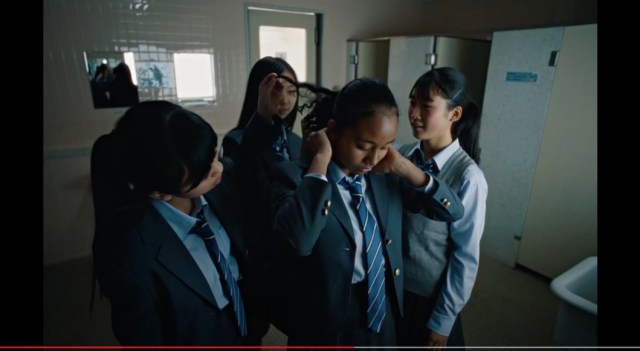
Video gets more dislikes than likes, proving just how much Japanese society needs to watch this right now.
Ever since their 1988 “Just Do It” ad, sports brand Nike has become known for producing commercials that spark a conversation and leave a lasting impression on viewers.
Last year, they got the conversation going around all the annoying questions tennis star Naomi Osaka has to deal with surrounding her ethnicity, and now they’re back to tackle another tough subject: the experience of young foreign residents in Japan.
The new commercial is called “Ugokashitsuzukeru. Jibun wo. Shorai wo. The future Isn’t Waiting“, with the Japanese part translating to “Keep Moving. Yourself. The future.” Featuring stories based on “the real-life experience of athletes”, this clip shows three soccer girls from different backgrounds in Japan — one is Japanese, one is Korean, and one is, like Osaka, mixed race, with a Black father and Japanese mother — and reveals how they “overcome their daily struggles and conflicts to move their future through sports.”
The commercial has English subtitles available, so click the white gear button next to the CC in the bottom right corner to turn them on, and take a look at the clip below:
The two-minute video is a moving look at what it can be like to be a young girl into soccer in Japan. The Japanese girl is bullied at school and struggles to meet her parents’ expectations to excel at schoolwork, with her questioning, “Am I good enough?”
On the other hand, the Black Japanese girl struggles to blend in, wondering “Am I normal enough?” as her Japanese classmates stare at her for looking different and touch her hair in the girls’ bathroom.
She can be seen watching a video of Osaka on her phone, and one of the comments that’s often directed at the tennis player, “So are you American or Japanese?” appears to hit home for her as well.
The Korean girl, who’s a transfer student in Japan, can be seen scrolling through information on her phone that discusses the “zainichi problem”, with “zainichi” meaning “foreign resident in Japan” and often used to refer to Koreans. Japanese-Korean relations can be tense and often hostile, and this girl gets stared at menacingly on the street and wonders if she should stand out a little less and get people to like her.
In the end, though, all three girls, who experienced all of these insecurities and feared that “Maybe I just have to deal with it“, eventually come to the realisation that no, they don’t have to just deal with it. They don’t have to wait until one day for things to change and get better — they will make it happen, by proudly doing what they love to do, and proudly loving their ethnicity and who they are as well.
▼ Nike reminds us that sport brings people from all sorts of backgrounds together.
The commercial brings to light the problem of bullying in Japan, and Nike’s handling of the issue drew many Japanese supporters on social media.
“This is amazing. I feel like I’ve never seen a commercial that cuts into the issue of living in Japan and minorities in Japanese advertising.”
“Thank you so much. Please continue to send important messages like this.”
“I’m so impressed by Nike. Thank you!”
“This made me cry. It would be wonderful if we could stop young people having thoughts like this.”
“So good – I’m always buying Nike because of ads like this!”
However, on the other side of the fence, a large number of Japanese took offence to the ad, saying:
“Is Japan really such a country full of discrimination? It feels like you’re creating a false impression of Japan.”
“You’re crossing the line and making Japanese people look foolish.”
“I feel this depicts Japanese as being extremely inhumane.”
“It’s not just Japan – discrimination exists in other countries too.”
“There’s no bullying in Japan!”
“I won’t buy Nike ever again!”
The video ruffled so many feathers with right-wingers in Japan that the video actually received more dislikes than likes, with 18,000 dislikes and 17,000 likes as of this writing. The comments on the YouTube video itself were also filled with hateful, racist remarks and comments from people who appear to be blind to bullying as a problem here, despite the fact that you can buy bully insurance for your children in Japan.
All the dislikes and negative comments on the video actually suggest that Nike has hit a nerve, with some commenters saying this just proves how necessary an ad like this is in today’s society. The more we expose the Japanese public to stories of bullying and racism, the more they’ll be able to recognise it and stop it, so when Japanese comedians joke about Naomi Osaka’s complexion being “too sunburned” or a Japanese company whitewashes the tennis star for their commercials, people will be able to realise what’s happening and call them out for it.
Addressing problems like bullying and racism in Japan isn’t a slur on the country — it’s a gentle prod towards improving society for everyone, so that one day, when another Japanese girl like Naomi Osaka makes it big on the world stage, people can accept her for who she is, instead of continually asking her about her love of katsudon.
Sources: YouTube/Nike Japan via Jin, Hachima Kikou
Images: YouTube/Nike Japan
● Want to hear about SoraNews24’s latest articles as soon as they’re published? Follow us on Facebook and Twitter!

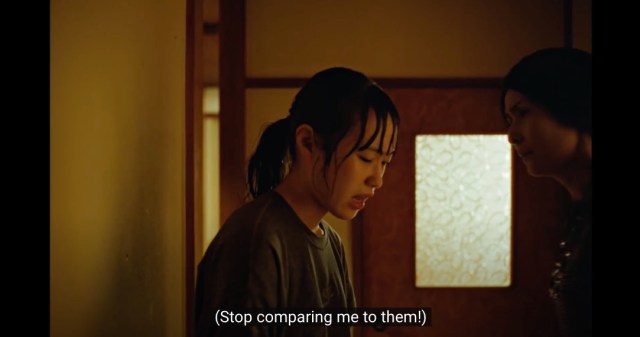
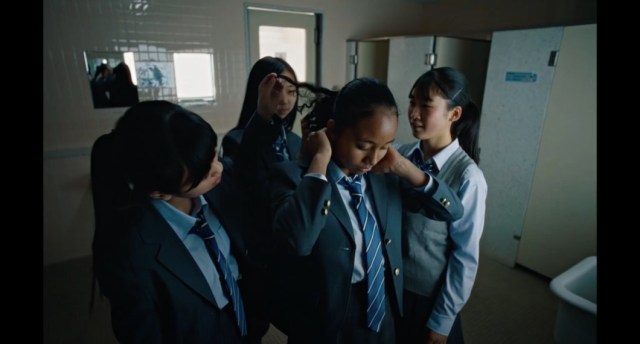
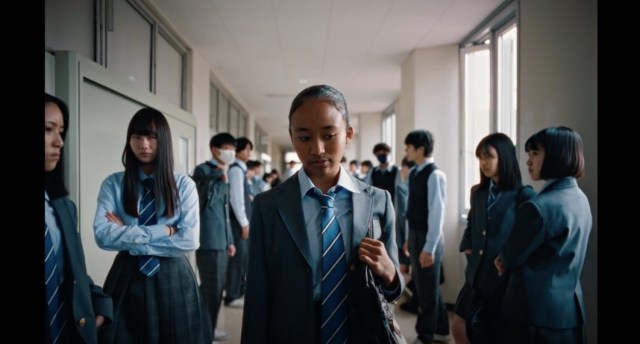
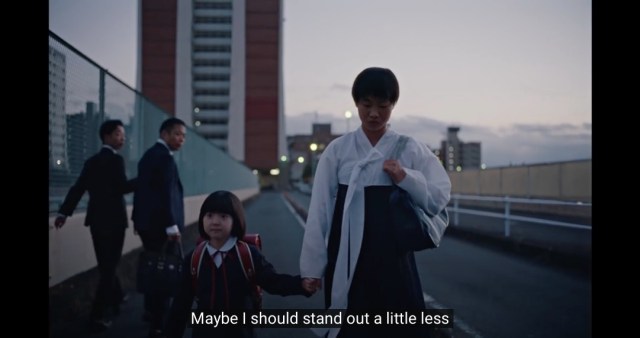

 Nike commercial about gender inequality in Japan receives backlash online【Video】
Nike commercial about gender inequality in Japan receives backlash online【Video】 Naomi Osaka slams reporters who ask her to speak in Japanese with new Nike commercial
Naomi Osaka slams reporters who ask her to speak in Japanese with new Nike commercial Naomi Osaka hits back at Japanese comedians’ “too sunburned” comment
Naomi Osaka hits back at Japanese comedians’ “too sunburned” comment Naomi Osaka called “too tanned” in Japanese comedy routine
Naomi Osaka called “too tanned” in Japanese comedy routine Naomi Osaka v Kei Nishikori: Tennis pros play with Japanese bats in Nissin cup noodles commercial
Naomi Osaka v Kei Nishikori: Tennis pros play with Japanese bats in Nissin cup noodles commercial Starbucks Japan unveils new sakura cherry blossom collection for hanami season 2026
Starbucks Japan unveils new sakura cherry blossom collection for hanami season 2026 Is Tokyo Station’s startlingly expensive wagyu bento boxed lunch worth its high price?[Taste test]
Is Tokyo Station’s startlingly expensive wagyu bento boxed lunch worth its high price?[Taste test] Japan Extreme Budget Travel! A trip from Tokyo to Izumo for just 30,000 yen [Part 2]
Japan Extreme Budget Travel! A trip from Tokyo to Izumo for just 30,000 yen [Part 2] Kyoto raises hotel accommodation tax to fight overtourism, travelers could pay up to 10 times more
Kyoto raises hotel accommodation tax to fight overtourism, travelers could pay up to 10 times more Does this video about an abandoned dog leave you wiping your eyes or shaking your fist?
Does this video about an abandoned dog leave you wiping your eyes or shaking your fist? How should you respond when a Japanese person gives you a compliment?
How should you respond when a Japanese person gives you a compliment? Viral Japanese cheesecake from Osaka has a lesser known rival called Aunt Wanda
Viral Japanese cheesecake from Osaka has a lesser known rival called Aunt Wanda Starbucks Japan releases first-ever Hinamatsuri Girls’ Day Frappuccino
Starbucks Japan releases first-ever Hinamatsuri Girls’ Day Frappuccino We followed Tokyo’s mystery walking map and ended up creating our own bar-hopping adventure
We followed Tokyo’s mystery walking map and ended up creating our own bar-hopping adventure Take a trip to Japan’s Dododo Land, the most irritating place on Earth
Take a trip to Japan’s Dododo Land, the most irritating place on Earth Japanese restaurant chain serves Dragon Ball donuts and Senzu Beans this spring
Japanese restaurant chain serves Dragon Ball donuts and Senzu Beans this spring Japan Extreme Budget Travel! A trip from Tokyo to Izumo for just 30,000 yen [Part 1]
Japan Extreme Budget Travel! A trip from Tokyo to Izumo for just 30,000 yen [Part 1] Highest Starbucks in Japan set to open this spring in the Tokyo sky
Highest Starbucks in Japan set to open this spring in the Tokyo sky Japan’s craziest burger chain takes menchi katsu to new extreme levels
Japan’s craziest burger chain takes menchi katsu to new extreme levels Japan has only one airport named after a samurai, so let’s check out Kochi Ryoma【Photos】
Japan has only one airport named after a samurai, so let’s check out Kochi Ryoma【Photos】 Japanese drugstore sells onigiri at pre-stupid era prices, but how do they compare to 7-Eleven?
Japanese drugstore sells onigiri at pre-stupid era prices, but how do they compare to 7-Eleven? Which convenience store onigiri rice balls are the most popular? Survey reveals surprising results
Which convenience store onigiri rice balls are the most popular? Survey reveals surprising results Japan’s newest Shinkansen has no seats…or passengers [Video]
Japan’s newest Shinkansen has no seats…or passengers [Video] Starbucks Japan releases new sakura goods and drinkware for cherry blossom season 2026
Starbucks Japan releases new sakura goods and drinkware for cherry blossom season 2026 Foreigners accounting for over 80 percent of off-course skiers needing rescue in Japan’s Hokkaido
Foreigners accounting for over 80 percent of off-course skiers needing rescue in Japan’s Hokkaido Super-salty pizza sends six kids to the hospital in Japan, linguistics blamed
Super-salty pizza sends six kids to the hospital in Japan, linguistics blamed Starbucks Japan unveils new sakura Frappuccino for cherry blossom season 2026
Starbucks Japan unveils new sakura Frappuccino for cherry blossom season 2026 Foreign tourists in Japan will get free Shinkansen tickets to promote regional tourism
Foreign tourists in Japan will get free Shinkansen tickets to promote regional tourism The 10 most annoying things foreign tourists do on Japanese trains, according to locals
The 10 most annoying things foreign tourists do on Japanese trains, according to locals Naruto and Converse team up for new line of shinobi sneakers[Photos]
Naruto and Converse team up for new line of shinobi sneakers[Photos] Is China’s don’t-go-to-Japan warning affecting the lines at a popular Tokyo gyukatsu restaurant?
Is China’s don’t-go-to-Japan warning affecting the lines at a popular Tokyo gyukatsu restaurant? Survey asks foreign tourists what bothered them in Japan, more than half gave same answer
Survey asks foreign tourists what bothered them in Japan, more than half gave same answer Japan’s human washing machines will go on sale to general public, demos to be held in Tokyo
Japan’s human washing machines will go on sale to general public, demos to be held in Tokyo Starbucks Japan releases new drinkware and goods for Valentine’s Day
Starbucks Japan releases new drinkware and goods for Valentine’s Day We deeply regret going into this tunnel on our walk in the mountains of Japan
We deeply regret going into this tunnel on our walk in the mountains of Japan Studio Ghibli releases Kodama forest spirits from Princess Mononoke to light up your home
Studio Ghibli releases Kodama forest spirits from Princess Mononoke to light up your home Major Japanese hotel chain says reservations via overseas booking sites may not be valid
Major Japanese hotel chain says reservations via overseas booking sites may not be valid Put sesame oil in your coffee? Japanese maker says it’s the best way to start your day【Taste test】
Put sesame oil in your coffee? Japanese maker says it’s the best way to start your day【Taste test】 No more using real katana for tourism activities, Japan’s National Police Agency says
No more using real katana for tourism activities, Japan’s National Police Agency says